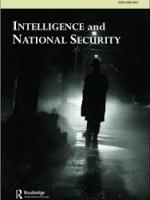When civil society collects intelligence information
These days, intelligence is everywhere. Intelligence practices (scanning, monitoring, reporting) not only pervade a considerable part of those state institutions which we used to consider purely “civilian”: social work agencies, health authorities, schools. Actors entirely outside of the state apparatus are now also involved in security and intelligence work, as everything from non-governmental organizations to private banks, transportation or food companies as well as individual citizens are called upon – ‘responsibilized’ – to collect and share knowledge with the intelligence services on issues ranging from terror, cyber to organized crime.
Clearly, the driving impetus behind this development is a radical shift in the Western conception of threat: a notion of our current reality as so uncertain, that only broad societal involvement (or what the US, with usual flair for patriotic swung has deemed ‘an-all-of-nation approach) will make ‘finding the needle in the haystack’ likely. In an article just out in Intelligence and National Security, Karen Lund Petersen and senior researcher at DIIS Vibeke Schou Tjalve critically investigates that trend and the challenges it poses to the democratic control of state authority: what happens, we ask, when those who ‘do’ security, and the public intended to control it, fuse into one? As we explain, that is a question which the intelligence services themselves have addressed and tried to deal with. As we also conclude however, their attempt is bound to fail: simply pursuing a strategy of standardized methods, routines, or rules will not do the trick.
Rather, we suggest, Western intelligence services need to rethink what bureaucratic ethics and democratic control can mean in a hybrid, partnered and non-hierarchical world. This does not mean throwing away the lessons of Max Weber. But it does mean rebalancing a rigid and often naïve faith in the power of rules with Weber’s equally important – but often forgotten - stress on the need to cultivate individual and collective capacity for critical judgment.
